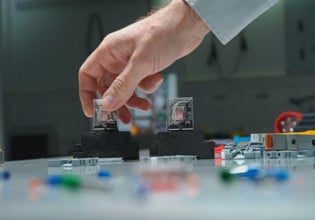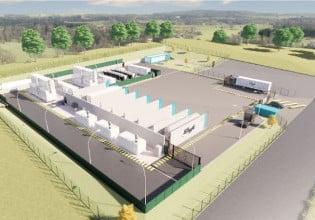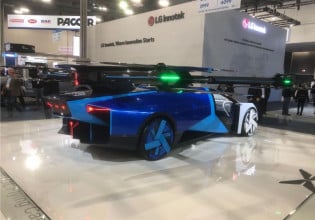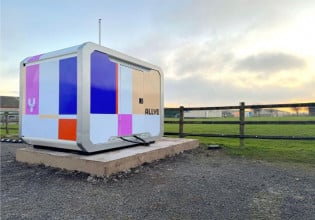Researchers at Lawrence Livermore National Laboratory (Livermore, CA) have developed and demonstrated a laboratory prototype miniature thin-film fuel cell power source, which provides portable electrical power for a range of consumer electronics. With the LLNL fuel cell, a typical cell phone battery could be projected to last more than 300 percent longer, extending standby time from four days to two weeks, and talk time from six hours to two days.
The miniature fuel cell technology incorporates a thin-film fuel cell and micro-fluidic fuel-processing components integrated into a common package. Using easy-to-store liquid fuels, such as methanol, the fuel cell power module provides greater than three times longer operating time than present rechargeable batteries. The patented design and method for making thin-film fuel cells combines microcircuit processes, micro-fluidic components and micro-electrical-mechanical systems technology. This solution provides the consumer with a lighter-weight, longer-lasting power source for replacement of existing rechargeable batteries.
"LLNL's fuel cell can be cheaper, smaller, with more energy capacity than any battery or alternative fuel cell technology,” said Jeff Morse of the LLNL Center for Microtechnology Engineering. “Additionally, the higher energy capacity of such a product will lead to further new classes of personal electronics, such as autonomous sensors and communication devices that are not currently possible with existing battery technologies. This will facilitate the integration of voice, data and computing technologies that cannot be achieved with today's technologies.”






